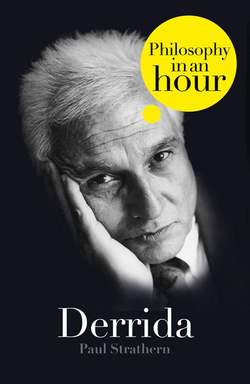Читать книгу Derrida: Philosophy in an Hour - Paul Strathern - Страница 4
Introduction
Оглавление“I love nothing better than remembering and Memory itself,” claimed Jacques Derrida in his 1984 memoir of his close friend, the philosopher Paul de Man, who had recently died. Yet at the same time Derrida confessed: “I have never known how to tell a story.” These two characteristics are far from being contradictory for the author. As he says of himself: “It is precisely because he keeps the memory that he loses the narrative.” The image remains “legible”; incorporating it in a “story” inevitably blurs this legibility, imposing interpretation. So far so good. It thus comes as something of a surprise when we discover that the ensuing memoir contains not a single image of his friend and absolutely no memories of him. Needless to say, there is not even a hint of story about him: this would impose interpretation. Yet paradoxically this entire so-called memoir is devoted to an interpretation of his friend’s intellectual achievement. In his own words, Derrida “dialogues obliquely” with de Man’s work, obscurely interpreting it with regard to “prudent explication” and “a battery of performative acts” by such figures as Heidegger, Austin, Hölderlin, and Nietzsche.
Any clear, commonsense approach to Derrida’s work thus labours under a severe disadvantage. Worse still, it goes completely against the author’s intention. It is therefore only fair to warn the reader that my attempt at clarity in the ensuing description of Derrida’s life and work would be regarded by its author as both counterproductive and hopelessly biased. Wit, on the other hand, is definitely permitted. Derrida is a great believer in jokes, puns, and humour. Yet here again we suffer a setback: this is specifically French intellectual humour. It derives from that modernist tradition of European Continental art and thought known as “the absurd.” When confronted with an absurd situation, innocent outsiders living beyond this privileged intellectual territory are wont to laugh. Such naiveté displays a woeful misunderstanding. The absurd is a notion of utmost seriousness. Similarly with Derrida’s humour. This is no laughing matter. It is not funny (except to French intellectuals). Such humour doesn’t play for laughs. Derrida may share a Jewish background with Woody Allen, but by no stretch of the imagination do they share a common humour. Whether the Manhattan hypochondriac or the great Parisian intellectual sheds more light on our varied humanity – in other words, is more “serious” – is another question.
